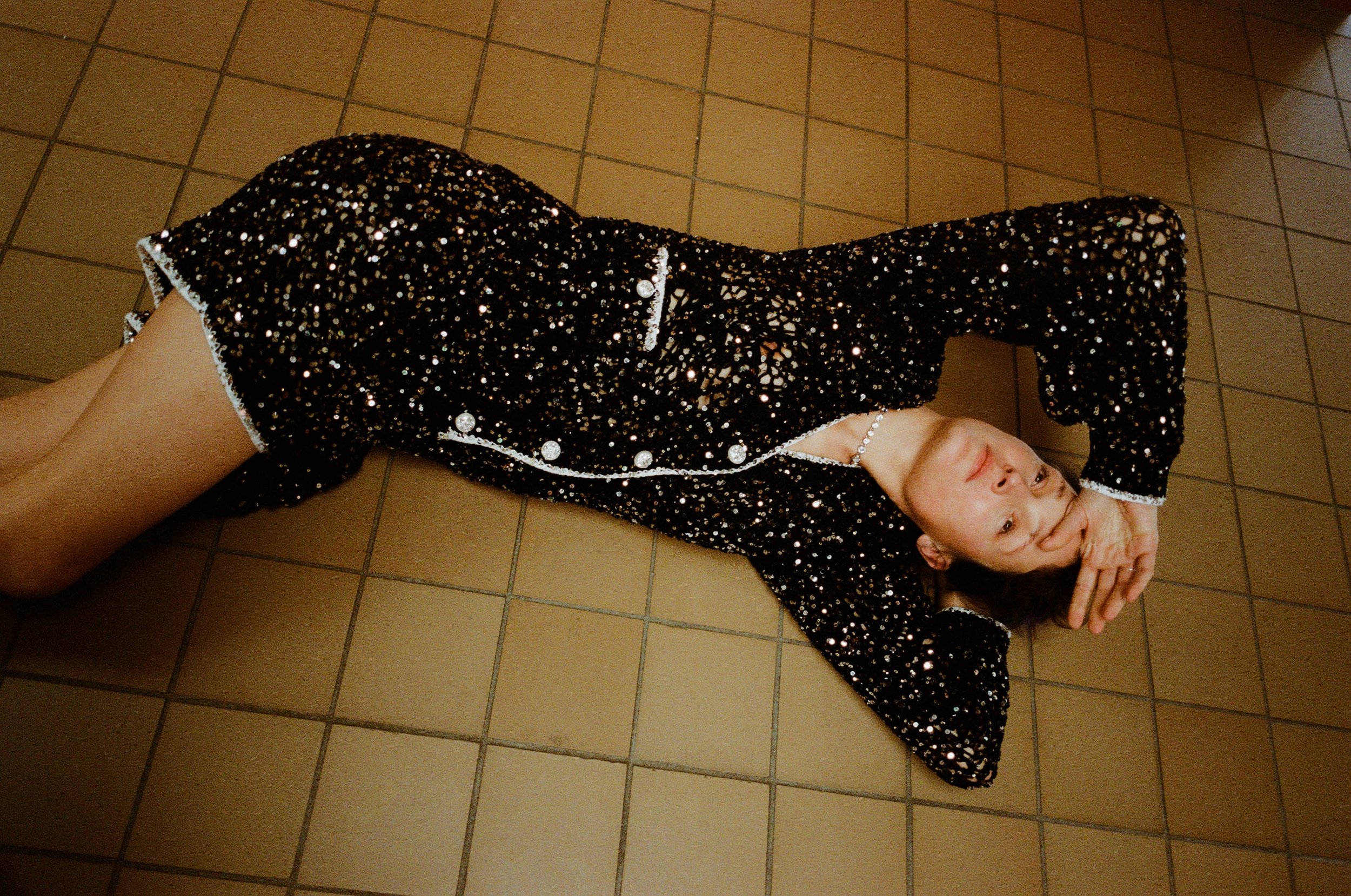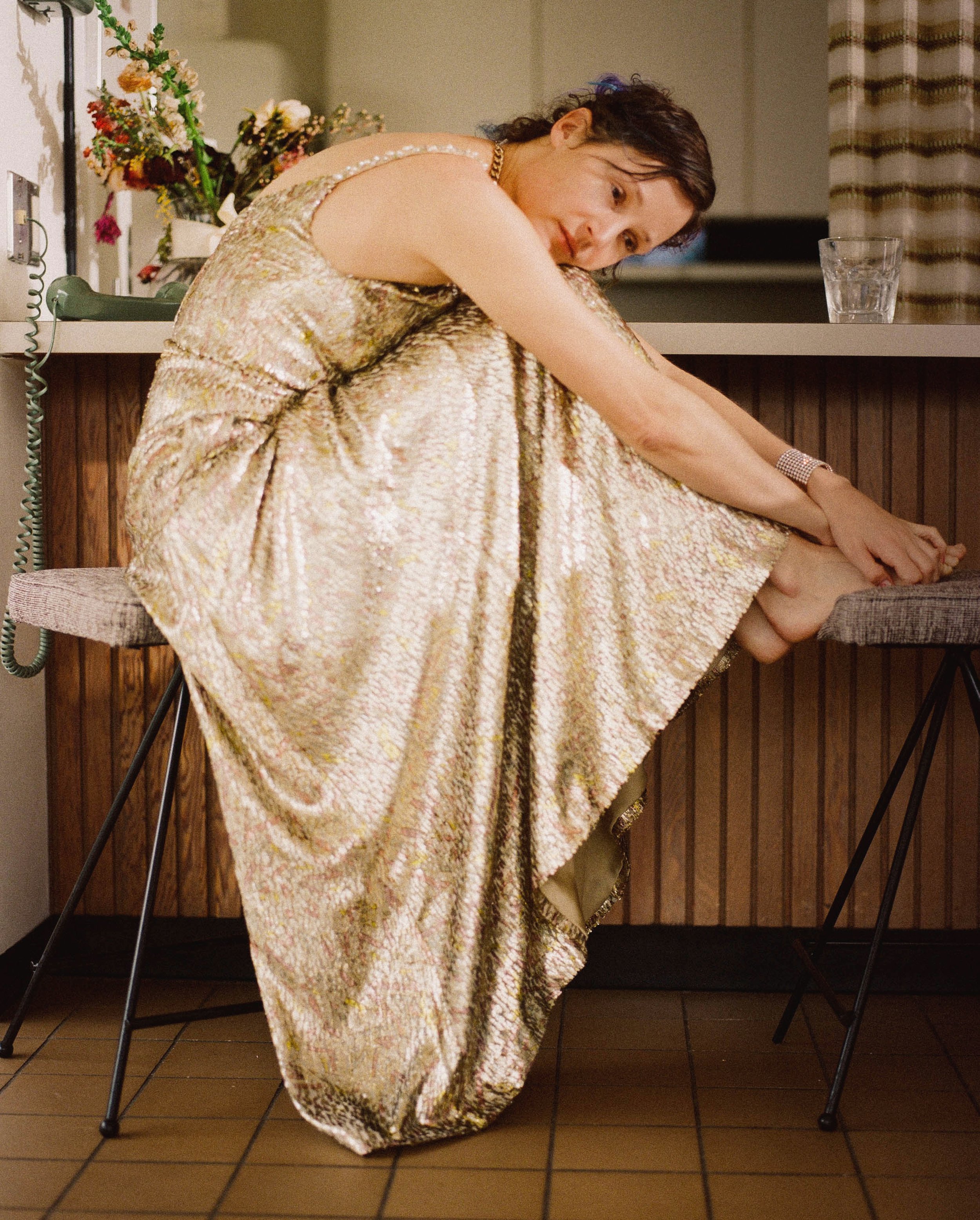The key difference, she says, is the noise. “It’s more quiet [with women]. If you had been on the set of Corsage, no one was screaming.” Having just come from work on the upcoming French blockbuster The Three Musketeers, she admits the sound and fury of typical big budget productions isn’t how she works best. “That was hard for me. I realized then that I need silence. It’s about listening to people—not only is acting about listening, making movies is about listening.” The idea of quiet rebellion can seem paradoxical for someone as vocal as Krieps, but informs not just the women Krieps plays but her entire ethos of film-making. By making space for silence, she makes a radical statement in the bluster of Hollywood.
One might naturally wonder if taking a more active role in the movie-making process is what’s next for Krieps. “I am an actor, yes, but I'm actually interested in film and I'm interested in the art of filmmaking,” she says, and has played the role of filmmaker before both fictionally in Bergman Island (2021) and her real-life involvement in the creation of Corsage. But Krieps has never been one to make the predictable move. “There's something now about directing, it's almost too obvious. Because that's what everyone thinks I'll do. But deep inside of me—I can't let go of this belief that they cannot tell me what to do.”
For now, she’s quietly rebelling by leaning into the other half of the double agent life and taking some much-needed time at home with her family. “I think my kids have probably saved me from becoming an asshole. To know that someone loves you unconditionally and that you love someone unconditionally. You create your own belief system. It's the actual secret to everything.”


